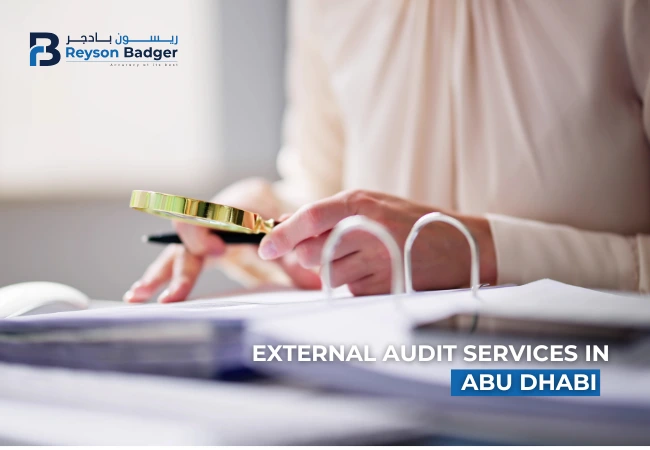
An external audit refers to a systematic examination of the organization's financial records and processes conducted by an independent, third-party auditor. It therefore helps ascertain the accuracy, reliability, and conformity to stated requirements. External audits in Abu Dhabi play a significant role in maintaining the transparency, accountability, and trust of stakeholders. For instance, there are particular requirements from the Emirate's institutions, the Central Bank of the UAE, the Abu Dhabi Department of Economic Development, and even the Federal Tax Authority each needing certain external audits for certain entities. These are sure to abide by federal laws, international standards, and best practices in industries. Most external audits in Abu Dhabi companies' practices present a commitment to financial integrity, risk management, and excellence in governance.

External Audits in Abu Dhabi, external audits can be broadly classified into four different types to serve the different purposes they fulfill:
1. Financial Statement Audit
A financial statement audit is the examination process for an organization's financial statements on the basis of accuracy, completeness, and compliance with the IFRs and UAE accounting standards, which helps the stakeholders of an entity in being confident about the financial position and performance.
2. Compliance Audit
A compliance audit is one type that verifies compliance to set down requirements, laws, and industry standards. It identifies potential risks of non-compliance and checks conformity to the regulatory framework of Abu Dhabi.
3. Operational Audit
An operational audit evaluates the operational effectiveness of an organization in terms of efficiency and internal controls. It helps identify areas of improvement and optimizes business processes for improved performance as a general rule.
4. Special Audit
Special audits focus on specific concerns or issues, such as the following:
Investigating possible financial irregularities
Special audits provide focused insights and recommendations for specific challenges or risks identified.
The external audit process in Abu Dhabi involves a systematic approach to ensure a thorough examination of an organization's financial records and processes.
Phase 1: Planning and Preparation
Phase 2: Fieldwork and Data Collection
Phase 3: Audit Testing and Evaluation
Phase 4: Reporting and Recommendations
External Audit Requirements in Abu Dhabi
External audits in Abu Dhabi must adhere to the standards stipulated by various regulatory provisions to comply with the principles of openness, responsibility, and bases of management excellence. This encompasses but is not limited to the following:
Selecting the right external auditor is crucial for a successful audit. Consider the following factors:
External audits are crucial in enhancing financial transparency, ensuring compliance, identifying risks, and strengthening internal controls. Common audit findings, such as financial statement errors and internal control weaknesses, highlight the need for regular and thorough audits. Implementing best practices, including regular audit committee meetings and risk management, helps businesses improve their governance. In Abu Dhabi, the importance of external audits cannot be overstated. Reyson Badger, a trusted audit firm with ISO 9001 external audit expertise and ISO certification under Quality Assurance, provides expert audit services to ensure your business remains compliant and financially sound. safeguard your business and enhance stakeholder confidence with ISO external auditors by partnering with Reyson Badger today!
What is an external audit in Abu Dhabi?
An external audit in Abu Dhabi is an independent examination of an organization's financial records by a qualified third party, such as one of the leading external audit companies Reyson Badger in Abu Dhabi. It assesses accuracy, reliability, and compliance with regulations.
What is the specialty of services provided by Reyson Badger?
Reyson Badger excels in external ISO 9001 audits, leveraging its own ISO certification in Quality Assurance. Our experienced ISO External auditors deliver efficient and insightful audits, going beyond compliance checks to provide valuable recommendations for improving your Quality Management System and achieving sustainable business growth.
When should we consult for External Audit Outsourcing?
Consider external audit outsourcing when facing regulatory requirements, seeking independent assurance, or needing expert guidance. External audit outsourcing Outsourcing can improve internal controls, enhance credibility with stakeholders, and optimize resource allocation. By leveraging the expertise of qualified auditors, you can gain valuable insights and ensure your organization's financial health while effectively managing the costs associated with external audit outsourcing.
What is the purpose of PWC External Audit?
PWC External Audits aim to provide independent assurance on the accuracy and reliability of a company's financial statements. They help build trust with stakeholders, identify and mitigate risks, improve internal controls, ensure regulatory compliance, and provide valuable insights to support informed decision-making.